Note: This article refers to the old top-down build, so it has been adapted to the project retrospective series to avoid confusion. More information about Dudebro’s current incarnation can be found in later posts.
![]() The screenshots released in 2011 for the top-down build displayed a major shift in art direction with the switch to 2D sprites for the characters and weapons. But how did this decision come into place? While perhaps a simple switch on the surface, the choice to go ahead with the change was discussed extensively with the team and did not happen overnight.
The screenshots released in 2011 for the top-down build displayed a major shift in art direction with the switch to 2D sprites for the characters and weapons. But how did this decision come into place? While perhaps a simple switch on the surface, the choice to go ahead with the change was discussed extensively with the team and did not happen overnight.
One reason was some key members in the 3D art department leaving for personal reasons. We started exploring alternate solutions not to let the project suffer from a smaller number of modellers, and with the very talented pixel artists contributing to the game a solution soon became apparent; use sprites rather than 3D models.
The pros and cons were carefully weighed to determine whether this was indeed the right decision. On one hand, the perspective would have to be changed and getting it just right would prove to be difficult: the sprites needed to be facing the camera frontally all the time, not to look like soulless cardboard cutouts. This meant their angle within the game world wouldn’t have been exactly vertical and could still have looked off, especially closer to the edges of the screen, without the right camera settings. However, the sprites would have been more faithful to the concept art and would have meshed together modern and retro styles, something we’ve been yearning for from the very beginning with the choice of pixelated cutscenes intertwined to 3D gameplay. The look would also have been unique as few games today utilize both 2D sprites and 3D environments, and even fewer use realistically proportioned characters. Well, as much as Dudebro’s muscles can be defined realistic of course!
After a large number of mockups and attempts, the sprites not only ended up feeling right within the game world; they felt much better than the models we had initially, and could show more detail. So, the decision was finalized.
Later on, further dropouts in the team caused another, way more drastic switch. But that’s another story.
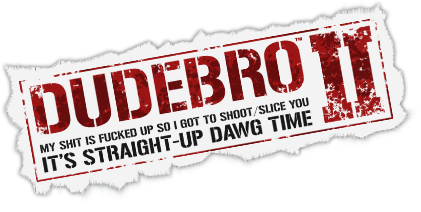
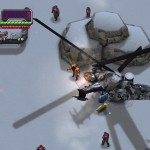
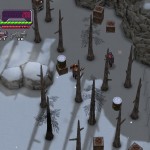
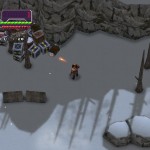
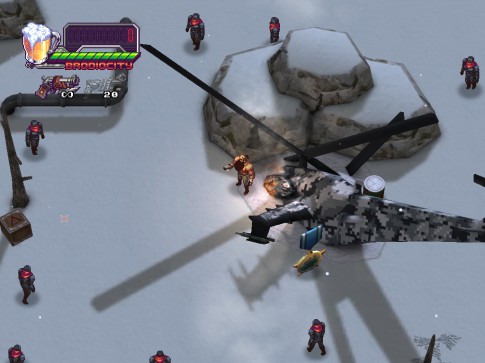
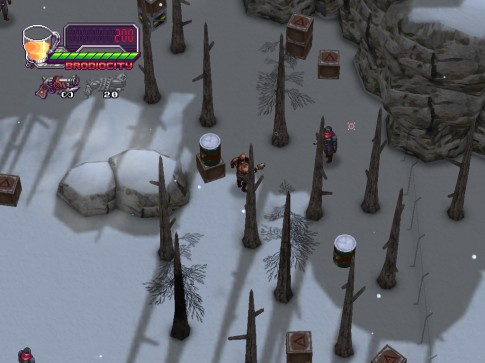
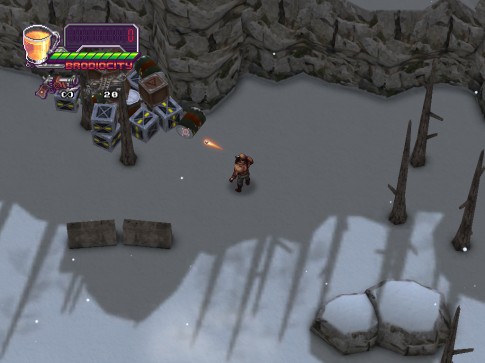
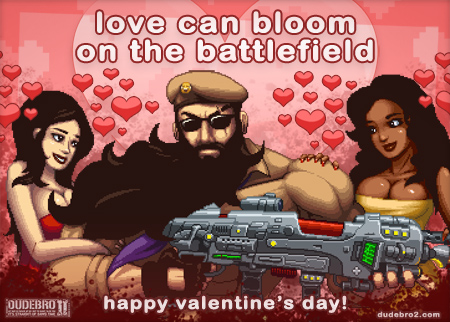
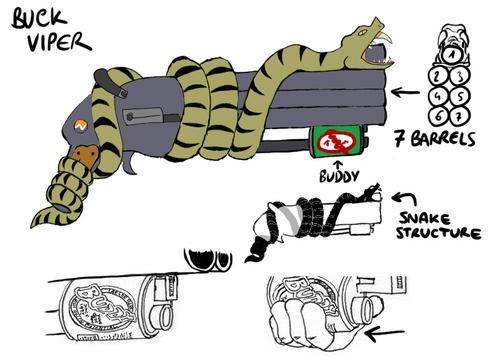
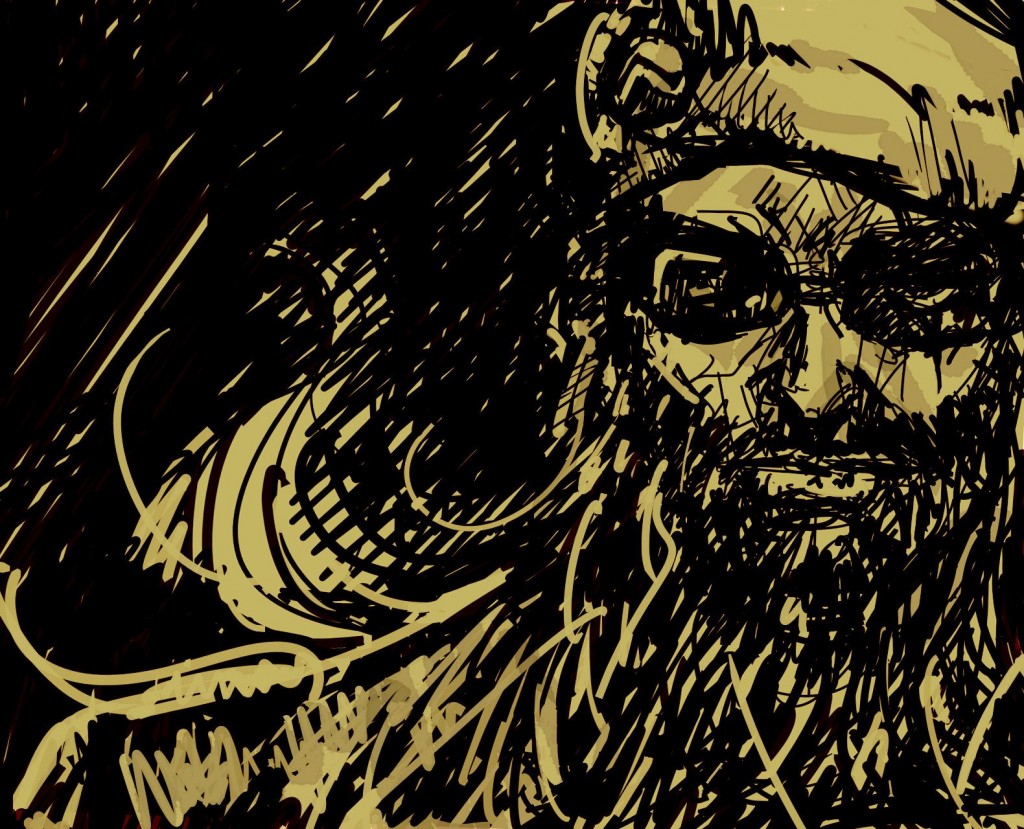

 I have no idea how a shark strapped to a tiger’s back would even work, but it sounds badass anyway.
I have no idea how a shark strapped to a tiger’s back would even work, but it sounds badass anyway.